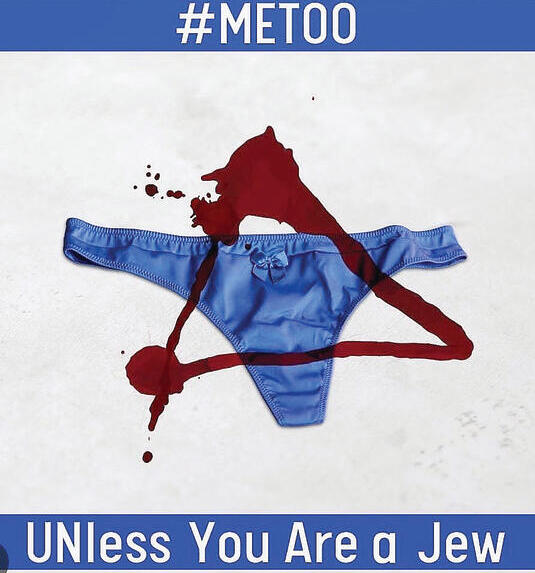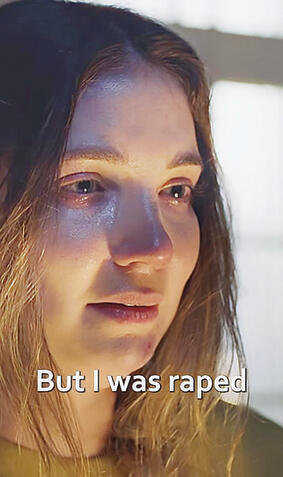Over six weeks have elapsed since October 7, yet even with time's passage, we're still unable to precisely gauge the extent of the atrocities. "This is an extraordinary situation. The volume and frequency of crimes, injuries, disappearances, abductions, and fatalities are unlike anything we've previously encountered," says Yael Sherer, the director of the lobby against sexual violence.
Read more:
She further explained the difficulties in documenting such an event. "We're one and a half months in, yet we're merely at the inception of the process. It may seem absurd, but it merely mirrors the enormity of this event. The amount of eyewitnesses, photographs, professionals who ventured into the field, and documentation is staggering. We've never grappled with an event of this scale as a nation before."
Beyond the slaughter, the appalling abuses, abductions, and the unthinkable pogrom, we can confirm today that Hamas terrorists sexually violated their victims, but we are yet to fully grasp the magnitude of this occurrence. Sherer explained, "Sexual assaults took place. Both females and males were victims, and the majority of those subjected to sexual assault didn't survive." She then added, "It's crucial to note that in such incidents where numerous women were murdered and slain, and I state this with sorrow, we will never ascertain the exact number of women who were raped."
Crime against humanity
Dr. Gal Harmat, a scholar focusing on women, peace, and security, made it clear: "In international law, rape is considered a crime against humanity. We have records spanning thousands of years that show the use of rape as a war tactic, transforming a woman's body into a battleground to exact revenge on a nation and to damage its national purity. This is why it's crucial in international law to view it as a weapon and a crime against humanity."
In the past few weeks, a civilian commission composed of academics, legal professionals, and field experts has been set up to document the gender-related war crimes that transpired on October 7. Tal Hochman, the Director of Government Relations at the Women's Lobby, stated: "We're compiling an archive of testimonies from videos, eyewitness accounts, auditory testimonies, and professional accounts like those from ZAKA or individuals who gathered forensic evidence. We also have materials from terrorist investigations and their cameras, as well as professionally captured scene videos. Gradually, we're piecing together a grim picture of the scale and brutality of the gender-related war crimes."
Hochman elaborated on the shocking findings from the materials they are gathering: "The sexual assaults were not isolated incidents on the periphery of the attack, but rather an integral part of the mission assigned to the terrorists. They truly employed this tool as a strategy, as a means of warfare," she explained. "We suspect that it's not just that most of the victims of sexual assault are no longer alive.
The act of killing them before or after the sexual assault was a method of eradicating evidence. It's unlike anything we've seen before. It brings to mind wars in countries we thought were far removed from us, but it turns out they're not. We've come to realize that there was a full spectrum of atrocities: rape, gang rape, mutilation of bodies, humiliation. Even to the extent of forcing family members to witness each other's torture. And yet, there are those in the world who dare to claim that we are fabricating events, or that there is no evidence."
The rumble of silence
As the evidence continues to pile up, the absence of pointed criticism from global human rights organizations becomes increasingly conspicuous. "Following the initial statement by UN Women at the onset of the war, which failed to mention gender-based war crimes, we penned a letter endorsed by over 150 organizations from around the world that champion women's rights. In this letter, we demanded acknowledgment of the crimes and action towards the release of the abducted," Hochman revealed. "We sent this letter twice, on October 26, but we have yet to receive a response."
"We're met with a resounding silence," she continued. "These are entities with a formidable international reputation, and when we see global statements expressing disbelief in our claims, it's profoundly significant that such organizations provide a platform for these issues. Simultaneously, we need their support. There are questions here about how to hold these individuals accountable, and instead of the world standing by, it's time it got involved and shared the knowledge it has gathered on how to handle such situations.
"I believe this situation harks back to the pre-MeToo era, and the feminist community is deeply affected by this narrative. We feel as though we were present when the right to abortion was revoked in the US or Poland, and when we protested the murder following the removal of the hijab in Iran, and then suddenly when it was our turn - they turned their backs on us."
I (don't) believe you
Orit Sulitzeanu, CEO of the Association of Rape Crises Centers in Israel, suggests that we are caught in a tug-of-war between individual needs and national requirements. "The support centers are aware of women who have survived these horrific events," she stated. "These survivors should receive therapy and decide how they want to deal with their experiences. The needs of the individual are straightforward: recovery and trauma management. However, on the other side, we have a nation that has endured an unprecedentedly sadistic massacre, and Israeli propaganda requires this information. Those who have survived this hellish ordeal should prioritize their mental well-being, and this fundamental principle is being exploited by entities that label themselves as human rights organizations."
"The world remains silent, the world fails to condemn, the world lacks empathy," she further added. "The 'I believe in you' movement was built on a foundational understanding that sexual violence and violence against women is a phenomenon that can't always be seen or proven, it's part of the global sisterhood. And this understanding was wiped out due to despicable politics and antisemitism."
Ayelet Razin Bet Or, who previously served as the Director of The Authority for Advancement of the Status of Women, remarked: "In response to the most brutal and extensive sexual assault in recent memory, an industry of silencing and gaslighting is flourishing, spearheaded by entities that have committed to defending women. This group didn't just overlook the catastrophe, but rather, they are actively striving to sow doubt about the realities of the situation.
"The silence from women's organizations and international entities tasked with safeguarding women's rights, coupled with their contradictory stance - in the face of our sisters' mutilated or bleeding bodies - is not just a stinging insult, but also a rallying cry for action. We will do everything in our power to ensure their voices are heard: the voices of Israeli women, the victims, the slain, those who have suffered physical or psychological harm, those abducted by sadists whose fate we are unaware of, the women who have lost children and parents, all the women who were stripped bare in the night, enduring the terrors of the Sabbath in body and spirit, and the girls whose childhood was abruptly stolen from them on October 7th."
First published: 11:14, 11.22.23





